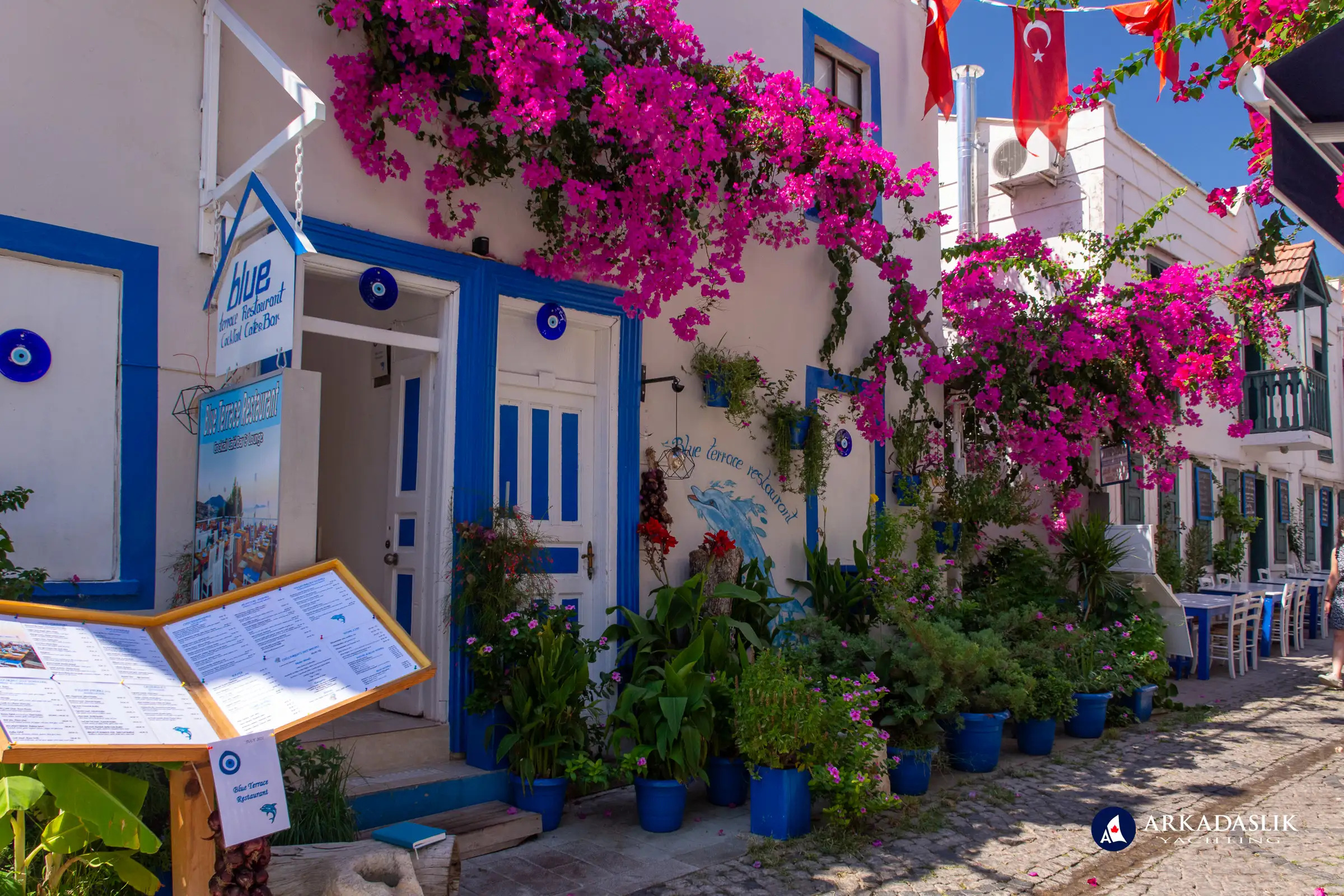Nestled at the foot of the majestic Taurus Mountains, Kalkan is a Mediterranean jewel offering an elegant escape for travelers. This once-sleepy fishing village has transformed into a destination known for its culinary excellence, boutique shopping, and breathtaking sea views, all while maintaining a sense of timeless charm.
What Makes Kalkan Special?
A Culinary Paradise
Kalkan boasts the highest concentration of bars and restaurants along Turkey's stunning coastline, earning it a well-deserved reputation as a haven for food lovers. From traditional Turkish delicacies like pide and kebabs to innovative international cuisine, the dining options cater to every palate. The cobbled streets winding through town are lined with charming eateries and upscale boutiques showcasing Turkish artisans' craft, offering a feast for both the eyes and the appetite.
Nearby Beaches
Though Kalkan itself lacks sandy beaches, its proximity to two spectacular options more than compensates. Just a short drive away lies Patara Beach, a sprawling stretch of golden sand steeped in history, as well as Kaputaş Beach, a secluded paradise set dramatically at the base of a canyon.
The View from Above
Built into a hillside, Kalkan offers a unique feature: nearly every café, restaurant, and boutique comes with a stunning view of the azure Mediterranean. While the town’s steep streets can pose a challenge, readily available taxis make exploring easy for visitors of all mobility levels.
Kalkan's Subtle History
Unlike its neighbors, such as Patara and Xanthos, Kalkan’s history is quieter yet no less intriguing. Once a modest fishing village, it gained prominence as a harbor for Mediterranean trade before slipping into obscurity with the rise of road transport. The town’s architecture reveals its mixed Ottoman-Greek heritage, a legacy of the Greek population who once called Kalkan home. Even the mosque overlooking the harbor reflects this blend, having begun its life as an Orthodox church.
The Modern-Day Allure of Kalkan
Kalkan’s modern renaissance began in the 1970s when discerning international travelers fell in love with its sun-soaked ambiance and scenic beauty. Today, the town has blossomed into a refined holiday destination with strict building codes preserving its historical charm. Its tranquil, upscale vibe continues to captivate visitors, many of whom return year after year.
Why Visit Kalkan?
Kalkan is more than just a holiday resort; it’s an experience. From savoring gourmet meals in atmospheric restaurants to exploring nearby historical landmarks and unwinding on pristine beaches, Kalkan promises a vacation to remember. Whether you’re a foodie, a history buff, or simply seeking a slice of Mediterranean paradise, Kalkan invites you to indulge, relax, and discover.
Stunning Views and Vibrant Life in Kalkan
Immerse yourself in the charm of Kalkan with this gallery showcasing its picturesque harbor, scenic sea vistas, and lively streets.
Click on any image to expand.
















Kalkan offers an enchanting blend of sophisticated charm, scenic beauty, and a rich culinary scene. Whether you're wandering through its cobbled streets, savoring gourmet meals with a view, or relaxing on nearby beaches, Kalkan promises an unforgettable experience. With its captivating history, relaxed atmosphere, and stunning Mediterranean backdrop, this coastal town is a true gem of the Lycian Coast.
Plan Your Perfect Kalkan Escape
Ready to explore Kalkan’s elegance and serenity? Whether you're including Kalkan as part of a cruise along the Lycian coast or planning a visit on your own, this Mediterranean gem is waiting to be discovered. Contact us today to plan your next unforgettable cruise, with Kalkan as a highlight of your adventure!
















